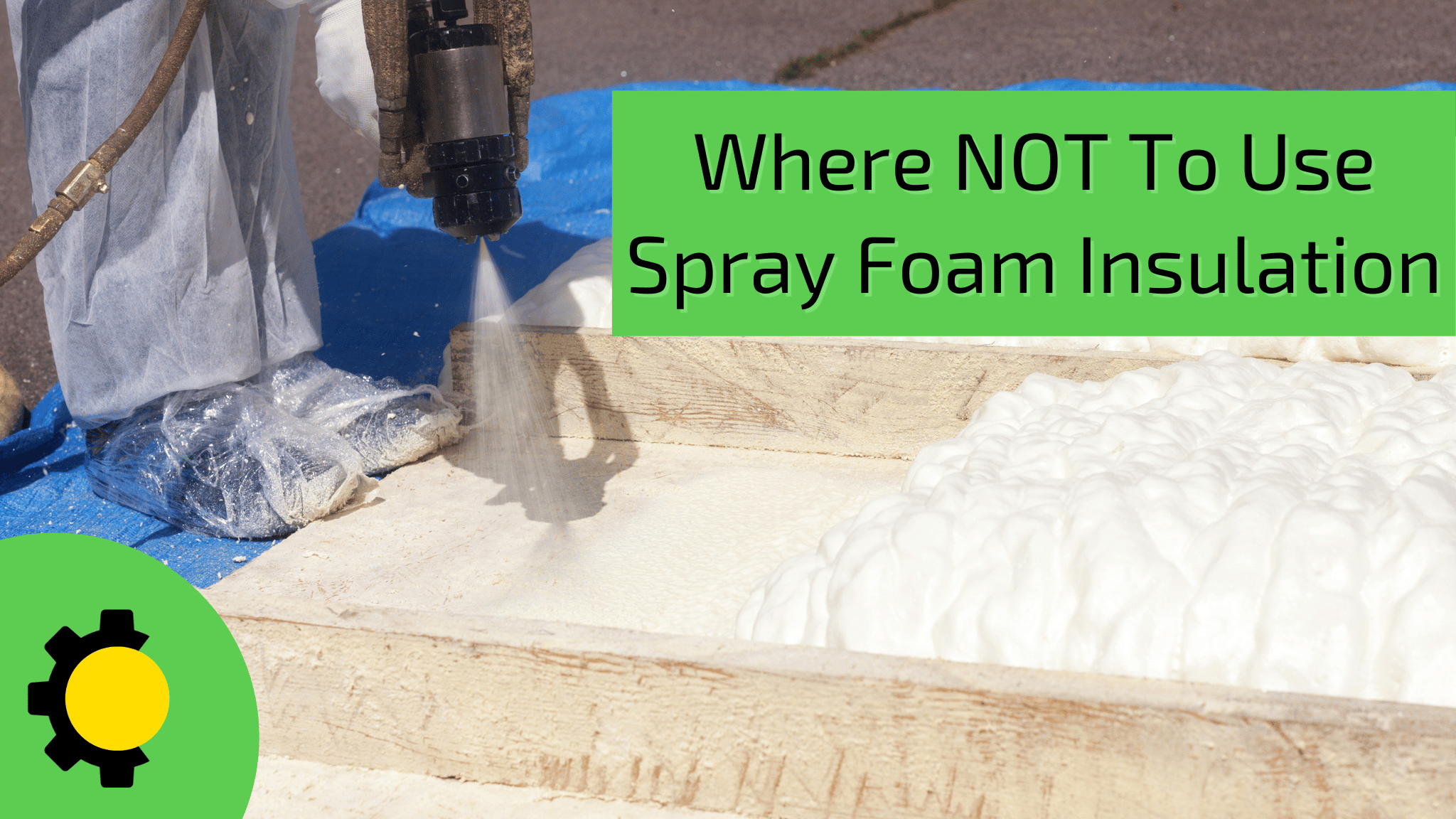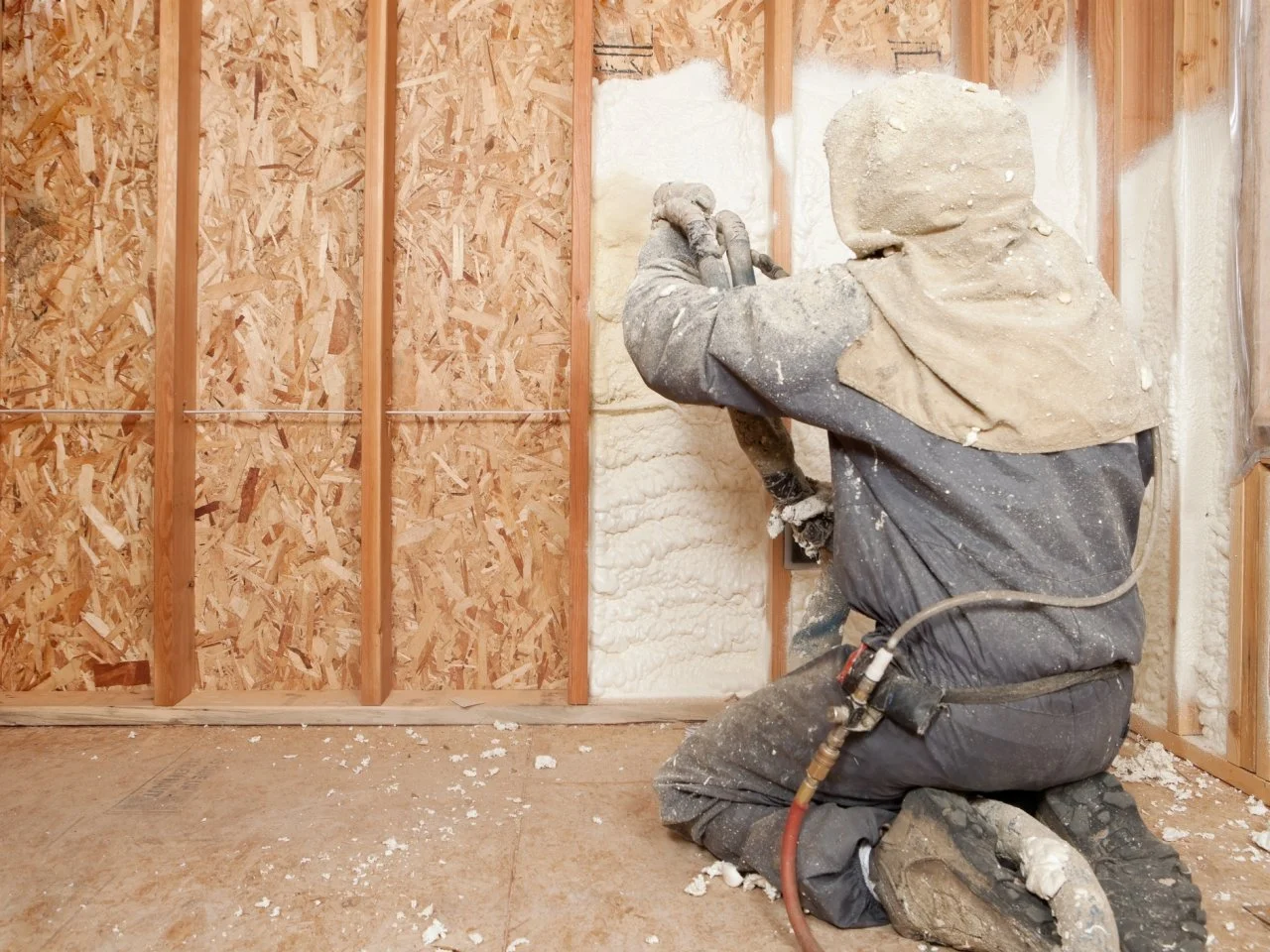Top Factors to Pick Spray Foam for Your Next Insulation Job
When taking into consideration insulation choices for your next job, spray foam stands out due to its outstanding performance characteristics and performance advantages. As you evaluate your options, checking out the flexible applications and long-lasting benefits of spray foam may reveal engaging factors to integrate it right into your insulation technique.
Superior Insulation Performance

The high R-value of spray foam, which determines its thermal resistance, is an additional key benefit. Closed-cell spray foam, for instance, can accomplish an R-value of approximately 6.5 per inch, considerably outmatching fiberglass batts and cellulose. Spray foam insulation produces an impermeable seal, which minimizes thermal bridging and decreases the possibility for mold and mildew growth due to moisture accumulation.

Energy Efficiency Benefits
The power efficiency advantages of spray foam insulation are considerable, further improving its appeal as a leading choice for constructing insulation. Spray foam broadens upon application, creating a closed seal that minimizes air leakages, which is a common resource of energy loss in standard insulation materials.
Furthermore, spray foam insulation boasts a high R-value per inch, which indicates it offers a lot more thermal resistance in less area contrasted to options like fiberglass or cellulose (Spray Foam). This performance not only adds to immediate energy financial savings but likewise advertises long-lasting sustainability by lowering the overall power intake of a building
In addition, the execution of spray foam can certify property owners for power effectiveness incentives and tax credit scores, including monetary benefits to its energy-saving capabilities. In an era where energy preservation is paramount, choosing spray foam insulation not just boosts comfort but likewise straightens with eco responsible methods, making it a prudent option for both industrial and property tasks.
Dampness and Mold And Mildew Resistance
Given its distinct structure and application technique, spray foam insulation uses exceptional moisture and mold resistance, making it an optimal option for different atmospheres. The closed-cell framework of spray foam produces a strong obstacle that successfully secures off prospective wetness access, consequently minimizing the probability of mold and mildew growth. Unlike conventional insulation materials, which can take in water and offer a breeding ground for mold, spray foam continues to be unsusceptible dampness, boosting the general health and wellness of the indoor environment.
Moreover, the application process of spray foam entails increasing and filling up spaces and fractures, ensuring a limited seal that lessens air leaks. This characteristic not just enhances energy efficiency yet likewise helps control humidity degrees within the area. Proper moisture control is vital for stopping mold and mold, making spray foam insulation especially advantageous in locations susceptible to dampness, such as cellars and crawl spaces.
Along with its moisture-resistant residential properties, spray foam is likewise naturally immune to mold development. This characteristic makes certain that buildings and homes stay safe and healthy and balanced in time, giving comfort to property owners and structure managers alike.
Long-Term Price Cost Savings
Spending in spray foam insulation yields substantial long-lasting price savings, largely through boosted energy effectiveness. Unlike traditional insulation products, spray foam develops a closed seal that decreases air leakage. This decrease in drafts leads to reduce heating & cooling expenses, as cooling and heating systems do not have to function as tough to maintain comfortable interior temperature levels.
Additionally, the premium insulating residential properties of spray foam mean that homes stay constantly comfy year-round, reducing reliance on energy-consuming home appliances. With time, these savings can build up, causing a recognizable decrease in utility expenses.
In addition, spray foam insulation adds to the long life of your home's framework by preventing moisture build-up and mold growth, which can cause expensive fixings. With its longevity and resistance to settling, spray foam maintains its effectiveness over the years, guaranteeing that the preliminary investment continues to pay off.
Basically, choosing spray foam insulation not only boosts your home's power performance yet additionally equates right into considerable long-lasting financial benefits, making it Homepage a sensible financial investment for home owners aiming to minimize expenses while enhancing comfort and sustainability.
Versatile Application Options
Countless application alternatives make spray foam insulation an extremely flexible choice for a variety of structure jobs (Spray Foam). This adaptability permits it to be successfully used in residential, commercial, and commercial settings, catering to varied insulation requirements
Spray foam can be applied in attic rooms, walls, crawl rooms, and even roofs, giving smooth coverage that removes gaps and spaces where air leaks frequently happen. Its capacity to broaden upon application guarantees a limited seal, which is vital for energy performance and moisture control.
In addition, spray foam insulation is offered in various formulas, consisting of open-cell and closed-cell types, permitting tailored remedies based on details job needs. Open-cell foam is description lighter and much better matched for soundproofing, while closed-cell foam provides premium insulation and structural honesty, making it perfect for locations exposed to wetness.
Additionally, spray foam can be applied in hard-to-reach rooms, enhancing its suitability for retrofitting existing frameworks. With the capability to comply with numerous substrates, including concrete, wood, and steel, spray foam insulation stands out as a flexible alternative that meets the demands of modern-day structure practices.
Final Thought
In conclusion, spray foam insulation arises as a premium choice for insulation projects due to its remarkable thermal resistance, power effectiveness, and capability to develop airtight seals that protect against dampness and mold development. Picking spray foam insulation guarantees an extensive remedy that satisfies the demands of modern-day building and energy performance requirements.
When click for info it comes to attaining ideal energy performance in industrial and residential structures, spray foam insulation stands out for its exceptional insulation efficiency.The energy effectiveness benefits of spray foam insulation are considerable, further improving its appeal as a leading choice for developing insulation.Investing in spray foam insulation yields substantial long-term price savings, mostly through improved power effectiveness.In verdict, spray foam insulation emerges as a remarkable alternative for insulation jobs due to its phenomenal thermal resistance, energy effectiveness, and ability to produce impermeable seals that prevent wetness and mold and mildew development. Selecting spray foam insulation makes sure a comprehensive service that satisfies the needs of modern building and power performance standards.